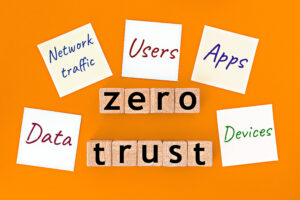As social media becomes more ingrained in our daily lives, some may wonder on how to best balance connection and control of your personal information. With the meteoric rise of social media titans like Facebook, Twitter, and TikTok over the past decade, data privacy and platform dominance have emerged as major concerns for users across Asia and beyond. This has fuelled interest in decentralized platforms built on blockchain, putting control back in the hands of users. In this article, we explore the burgeoning decentralized social media movement in Asia and how its ethos of transparency and trust empowers people in an increasingly complex digital world. Through examples of pioneering startups and grassroots adoption, gain insight into this potentially transformative trend.
The Growth of Social Media in Asia

Rise of the Mobile Internet
- The widespread adoption of smartphones and improved mobile data networks have enabled more Asians to access social media on the go. This increased connectivity has driven social media growth, especially among younger generations. In many Asian countries, the majority of social media users access platforms primarily through mobile devices.
Young, Tech-Savvy Populations
- Asia is home to some of the world’s youngest populations with growing spending power. These digital natives have propelled social media growth, as they are more likely to adopt new technologies and spend more of their time online. In the Philippines, for example, the average social media user is just 22 years old.
Desire for Connection and Sharing
- There is a strong desire for connection and sharing in many Asian cultures which has also spurred social media growth. Platforms like WeChat, Line, and KakaoTalk are popular for both private messaging between friends as well as public sharing and discovery. These platforms have woven social media into the daily habits of many Asians by facilitating both social communication and access to services.
The rise of social media across Asia has provided both opportunities and challenges. While social media has enabled greater connectivity and access to information, concerns over data privacy, the spread of misinformation, and tech addiction are also growing. Decentralized social media platforms aim to address some of these challenges by giving users more control over their data and connections. However, their adoption at a mass scale remains limited. Overall, social media has transformed the way billions of Asians communicate and stay up-to-date with events. Its influence is likely to only grow in the coming decades.
Data Privacy Concerns Driving Demand for Decentralisation
As social media platforms have grown in scale and influence, concerns over how these companies handle user data have intensified. Many fear that tech giants have too much control over people’s information and are not transparent about how data is shared or used.
Loss of Data Control
- On centralized platforms, users have little control or visibility into what happens with their data after it’s shared. Once information is posted, platforms can access, analyze, and distribute that data largely without users’ knowledge or consent. They can sell data to third parties for advertising or other purposes, and in some cases, data breaches have exposed people’s private information.
Censorship Concerns
- Some governments also pressure social media companies to censor certain types of content or accounts. When platforms comply, it limits free expression and open exchange of ideas. Decentralized networks aim to resolve these issues by giving users more autonomy and transparency.
The Promise of Blockchain
- Blockchain-based social networks are decentralized, meaning data is not owned or controlled by any single entity. Instead, information is distributed across many nodes in the network. Blockchain also provides an auditable record of all data interactions, so users know exactly how and when their information is accessed or shared.
- With data privacy and censorship resistance built into these decentralized platforms, many believe they represent the future of social networking. Although still a niche market, their popularity is rising in Asia and around the world among those concerned with the centralization of power and control over the Internet.
Overall, as long as data privacy and content control remain issues, decentralized social networks will continue gaining more mainstream interest and adoption. The question is whether they can achieve the scale, user experience, and longevity of the centralized platforms they aim to replace.
How Decentralized Social Networks Work
- Decentralized social networks are built on blockchain technology, which allows data and content to be stored and shared across a distributed network of computers rather than a single central server. No single entity controls the network or has access to user data.
- Instead, blockchains rely on consensus algorithms to validate transactions and data. On social networks, this means no single company or government controls what information is allowed or censored. Users maintain ownership and control of their data. They can choose what to share and with whom.
- Since there is no central server, decentralized networks are more resistant to hacking, data breaches, and service interruptions. If one node on the network goes down, the others remain operational.
- Decentralized networks also allow for new features like peer-to-peer payments, verifiable credentials, and self-sovereign identity. Users can send money directly to each other or share verified personal information without relying on a third party.
- Some argue decentralized networks promote greater transparency since all transactions and data are recorded on a public blockchain. However, others argue this transparency reduces privacy. New privacy-enhancing technologies are aiming to solve this issue, allowing users to share information selectively and maintain anonymity.
- Decentralized social networks face significant challenges to mainstream adoption, including complex user experiences, scalability issues, and lack of interoperability with existing networks. However, proponents argue the benefits of user control, data ownership, and network resilience outweigh these current challenges. Overall, decentralized social networks aim to redistribute power from companies to individuals, promoting a fairer, more transparent network for sharing and connecting.
Case Studies of Leading Decentralized Platforms in Asia
As the desire for more transparent and user-controlled platforms grows in Asia, several decentralized social networks have emerged as leading options. These networks are built on blockchain, giving users more control over their data and content.
Mastodon
- Mastodon is an open-source network based on blockchain that provides an alternative to commercial social networks. It gives users control over their own data and servers. Mastodon has seen increased popularity in Asia, especially in India and Japan. With over 2 million users worldwide, Mastodon allows people to join networks run by non-profit organizations and individuals.
Steemit
- Steemit is a blogging and social networking website built on the Steem blockchain. It rewards users with cryptocurrency for posting and curating content. Steemit has a strong presence in South Korea, the Philippines, and Vietnam. The platform gives 100% of cryptocurrency rewards and voting power to users. With over 1 million accounts, Steemit proves that decentralized networks can gain mainstream popularity.
Dtube
- Dtube is a decentralized video platform where users can upload and share videos, earning cryptocurrency rewards. Built on the STEEM blockchain, Dtube has a large user base in Thailand, Vietnam, and China. Dtube does not store any data or videos on its servers, giving creators full control over their content. The network has over 2 million monthly users and continues gaining popularity across Asia as an alternative to centralized video platforms.
The rise of decentralized social networks like Mastodon, Steemit, and YouTube shows that users in Asia desire more transparent and user-controlled platforms. By building on blockchain, these networks give people power over their data, content, and networks. As concerns grow over data privacy and corporate control, decentralized options may see continued growth in Asia and worldwide.
The Future of Social Media – Centralized or Decentralized?
The ascent of decentralized social media platforms poses a challenge to the dominance of centralized platforms like Facebook, Instagram, and Twitter. Decentralized platforms are built on blockchain technology, enabling peer-to-peer interactions and allowing users to control their data and digital assets.
Greater Transparency and Trust
- Decentralized platforms promote transparency by allowing anyone to review the open-source code. This openness cultivates user trust that platforms are not mishandling data or manipulating algorithms behind the scenes. With decentralized platforms, users own and control their data, choosing what to share and with whom. This stands in contrast with centralized platforms that aggregate user data to target advertising.
Challenges to Adoption
- Despite the benefits of decentralization, centralized platforms still dominate due to their larger communities and greater resources. Decentralized platforms face challenges in achieving the network effects and scalability of major platforms. They also often lack the polish and simplicity that attract mainstream users. However, as concerns over data misuse and algorithmic bias grow, decentralized alternatives may gain more appeal, especially with younger, privacy-conscious users seeking more control and transparency.
An Uncertain Future
- The future of social media is still unwritten. While centralized platforms currently have the advantage, the rise of decentralized competitors could force them to adopt more privacy-preserving and transparent practices. There may also be opportunities for partnership, with centralized platforms integrating decentralized technologies to give users more control over their data and digital assets. The coming years will reveal whether decentralized platforms can overcome barriers to mainstream adoption and truly challenge the status quo. For now, the door is open for innovation in building a new generation of social media platforms that put users first.
Summary
As decentralized social media continues to gain traction across Asia, it is clear there are significant opportunities ahead. With data privacy and transparency at the core, these platforms put control back in the hands of users. However, work remains to increase public understanding and adoption of blockchain-based networks. Educational initiatives explaining the benefits to average social media users will be key. If the early promise can be fulfilled, decentralized platforms may fundamentally reshape social networking across the continent. For any new technology, the path from disruptive innovation to mainstream adoption is never straightforward. But by learning from early successes like those covered here, developers and users alike can contribute to a more open and empowered online future across Asia.
More Stories
Threads Unveils Native DM Test to Break Instagram Dependency
By unveiling a native DM (direct messaging) feature, Threads aims to sever its dependency on Instagram for private communications, a shift poised to redefine how users interact within the platform.
Instagram Edits Brings In-App Teleprompter to Boost Creator Confidence
Introducing the in-app teleprompter within Instagram Edits, a tool designed to bolster your on-camera confidence and enhance viewer engagement.
Southern Cross NEXT Lights Up Pacific with Ultra‑Low‑Latency High‑Capacity Cable
The Southern Cross NEXT (SX NEXT) submarine cable emerges as a pivotal innovation, redefining digital landscapes across the Pacific. Officially operational since July 2022, this 15,857 km four-fiber-pair marvel links Los Angeles and Sydney, with crucial connections to Auckland, Fiji, Tokelau, and Kiribati.
TikTok Empowers Users with AI-Driven Content Control Tools
TikTok is advancing digital content with AI-driven tools that give you more control over your viewing experience. On June 3,...
Instagram Edits Empowers Creators with Pro-Level Mobile Video Tools
Instagram unveiled Edits, their groundbreaking mobile video editing app designed to elevate the quality of Reels and short-form videos to empower creators.
Roblox Farming Craze Fuels Surging App Store Economy
As you dive into the dynamic world of digital economies, one phenomenon stands out: the Roblox farming craze. This surge,...


